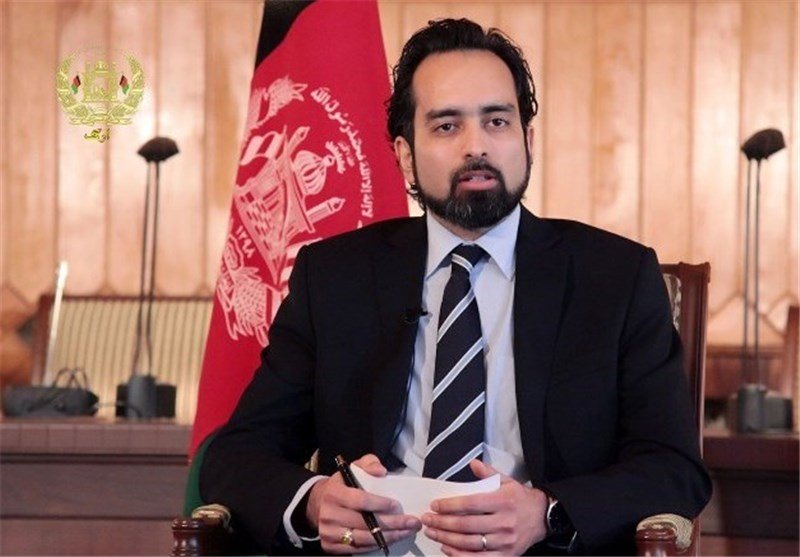
America’s destructive policies in Af-Pak region have led to terrorism, insecurity and geopolitical rivalries’

Q. The situation in Afghanistan continues to deteriorate with alarming rise
in civilian casualties. Do you see this war ending anytime soon?
A. Unfortunately, the war in Afghanistan imposed by foreigners is not going
to end anytime soon. Sadly, terrorism has become an enduring phenomenon in our
region and we will all (regional countries) continue to remain vulnerable. There
are old and new regional and trans-regional dimensions in the ongoing war in my
country. Any Afghan government in Kabul under the U.S. occupation cannot fix the
problem of terrorism alone. As regional powers, it is imperative for China,
Russia, Iran and India to work with Afghans and the international community to
design a long-term political strategy to address the political dimensions of war
and insecurity in Afghanistan.
Q. Taliban has offered to talk directly with the U.S. as they don't recognize
the legitimacy of government in Kabul. And according to reports, there have been
secret parleys between the insurgent group and the U.S. government officials
recently. Do you think these talks would work out?
A. The U.S. government has been talking with the Taliban since
the establishment of their movement in early 1990s. Talks can work out and
should if Washington engages with major regional powers, in particular, Moscow
and Tehran. It is crystal clear that any U.S. effort to eliminate the Taliban
militarily will be of no effect.
Q. The general elections are approaching in Afghanistan but political
dynamics have changed with many powerful political figures defecting and
switching ends. Do you think President Ghani is in a position to retain power?
A. The national unity government (NUG) in Afghanistan is the product of
foreign interference in our national processes such as the last presidential
election. Ashraf Ghani’s government is a U.S. design imposed on the Afghan
people. It has been unconstitutional and illegitimate and does not represent
Afghanistan. It is a foreign-imposed body based on lies. Therefore, there is no
reason to believe that Mr. Ghani will be able to retain power.
Q. President Ghani’s deputy Abdul Rashid Dostum, who was in forced asylum in
Turkey over charges of torturing his political rival, is back in Afghanistan.
Was it part of any deal?
A. Ashraf Ghani’s policies have been ill-advised and divisive for the
country. Forcing vice president Dostum to leave the country was a political
drama. It was not aimed at doing justice. If one skims through the statements
issued by the president's office in relation to Dostum, one can clearly see lies
and contradictions. Dostum’s return is certainly part of a political deal. The
recent uprisings against the government in the north by the supporters of Dostum
strongly challenged NUG's authority and the government was unable to manage the
situation, forcing it to clinch a deal.
Q. The war in Afghanistan has now entered 17th year and yet there are no
signs of peace. On the contrary the insurgent groups have become stronger. Why
has the U.S.-led coalition failed in Afghanistan?
A. It will be correct to state that the U.S. has failed terribly and
deplorably in Afghanistan and there are reasons for it. The U.S. forces have
been bombing our homes and villages, indiscriminately killing innocent Afghans
for years now. By doing so, they have been making more enemies than friends.
Secondly, Washington has been reluctant to fix the problem of Pakistani support
for terrorism in Afghanistan. It has been using Afghan soil against its so
called rivals in the region. Such destructive policies resulted in more
terrorism, insecurity, proxy wars and geopolitical rivalries. It is all
happening at the cost of Afghanistan.
Q. With the election of Imran Khan as the probable new Prime Minister of
Pakistan, do you think the relations between the two estranged neighbors would
improve?
A. I am not very optimistic, unfortunately. I believe things have
to genuinely improve and change within Pakistan first, in particular, in the
Pakistani military's thinking vis-à-vis Afghanistan, India and the wider region.
Governments will come and go in Pakistan like elsewhere. However, each
government will either serve the military or collapse for this or that reason
given by the Pakistani military.
Q. How important is Chabahar port project for Afghanistan? Do you think it
will reduce Afghanistan's dependence on Pakistan?
A. Chabahar port project is crucial to Afghanistan and our region. It is
vital for regional prosperity. As an Afghan and a friend of Iran, my message to
the Iranian government is to not allow this great project become a victim of the
ongoing Great Game in our region. It is understandable that Tehran sees
President Ashraf Ghani and his government with mistrust, however, it has opened
a very strategic trade route for Afghanistan, a close neighbor Iran, whose
stability and economic prosperity will have a direct impact on Tehran's
long-term security.
Source: Tehran Times















